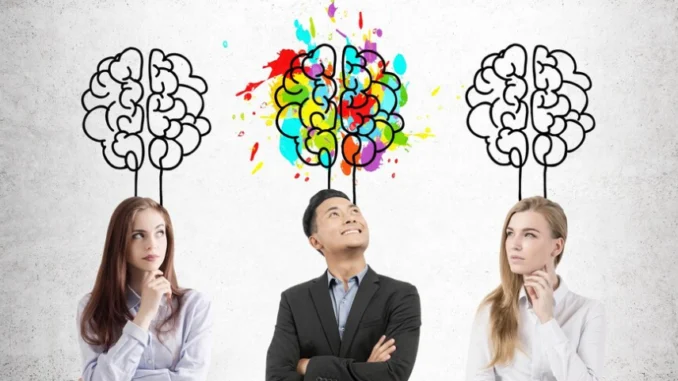
Individuals with a high level of emotional intelligence are able to negotiate with other people, make decisions and respond correctly to negative situations. And this skill can be developed.
Emotional intelligence (EI) is a person’s ability to process information that we receive or transmit through emotions. That is, the ability to express one’s emotions, manage them, and accept the feelings of others.
Traditionally, emotions are perceived as opposed to reason, as something illogical and chaotic. But Charles Darwin noted that emotions help humanity survive, because they tell whether information is important and what to do in a given situation.
The term “emotional intelligence” gained widespread popularity in 1995 after the publication of a book of the same name by American science journalist Daniel Goleman . He voiced the idea that the ability to understand and manage emotions greatly increases our chances of success. The idea spread quickly and had a huge impact on the way people think about emotions and human behavior.
How to determine the level of emotional intelligence?
There are many methods for diagnosing the level of EI, for example, the Mayer-Salovey-Caruso test. It consists of 144 questions and it is better to analyze its results with a psychologist. But there are marker questions that allow you to suspect a person of low emotional intelligence: it is difficult to come to an agreement with him, he is often in a bad mood, it is difficult to make friendships, he is easy to offend, he has no hobbies, is not interested in anything, is constantly tired of everything, etc.
13 signs of developed emotional intelligence are highlighted by Justin Bariso in the book “Emotional Intelligence in Practice” :
1. Become aware of your feelings and emotions.
2. Pause before speaking or acting.
3. Strive to control your thoughts and reactions to emotions.
4. Use criticism as an opportunity to improve something.
5. Stick to your values and principles.
6. You know how to sympathize.
7. Praise and inspire others.
8. Give useful feedback.
9. Apologize and admit mistakes.
10. Forgive and forget.
11. Fulfill your obligations.
12. Help others.
13. Protect yourself from emotional sabotage.
How to develop emotional intelligence
Emotional intelligence is formed in childhood. “The task of parents is to teach the child to understand his feelings and name them. For example, if a child is angry, the parent needs to respond to the emotion: “You are very angry.” At this stage, adults and the child can discuss emotions, referring to the feelings of characters from fairy tales and their own. It is important to ask your child every day what his mood is, what feelings he experienced during the day,” advises speech pathologist Marina Studneva in an interview with healthcust reader It is necessary to develop compassion, responsiveness, empathy, and a sense of duty. It is also important for parents to show their child that mom or dad are not always in a good mood, and that this is normal, the specialist notes.
For adults, there are practices for developing the level of emotional intelligence. For example, experts advise keeping a diary of emotions. It is necessary to record vivid emotions during the day and the situations that provoked them. This will help you better understand how feelings influence thoughts and behavior. Relaxation and breathing exercises will teach you how to manage your emotions.
A person with developed emotional intelligence reacts to reasons, not actions or emotions, psychologists conclude. This helps him to correctly perceive criticism, understand other people and respond to them with an adequate reaction.